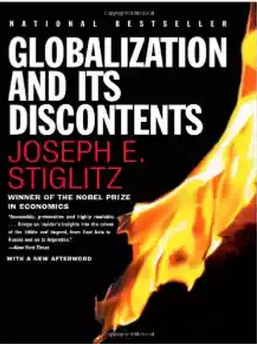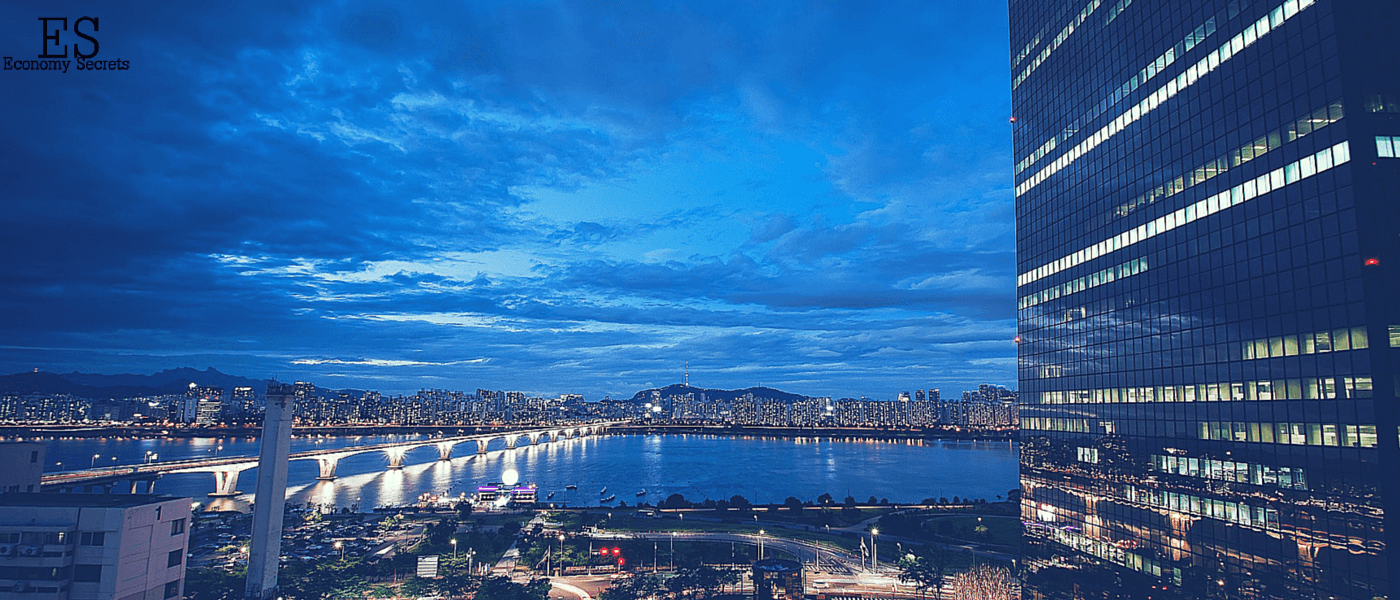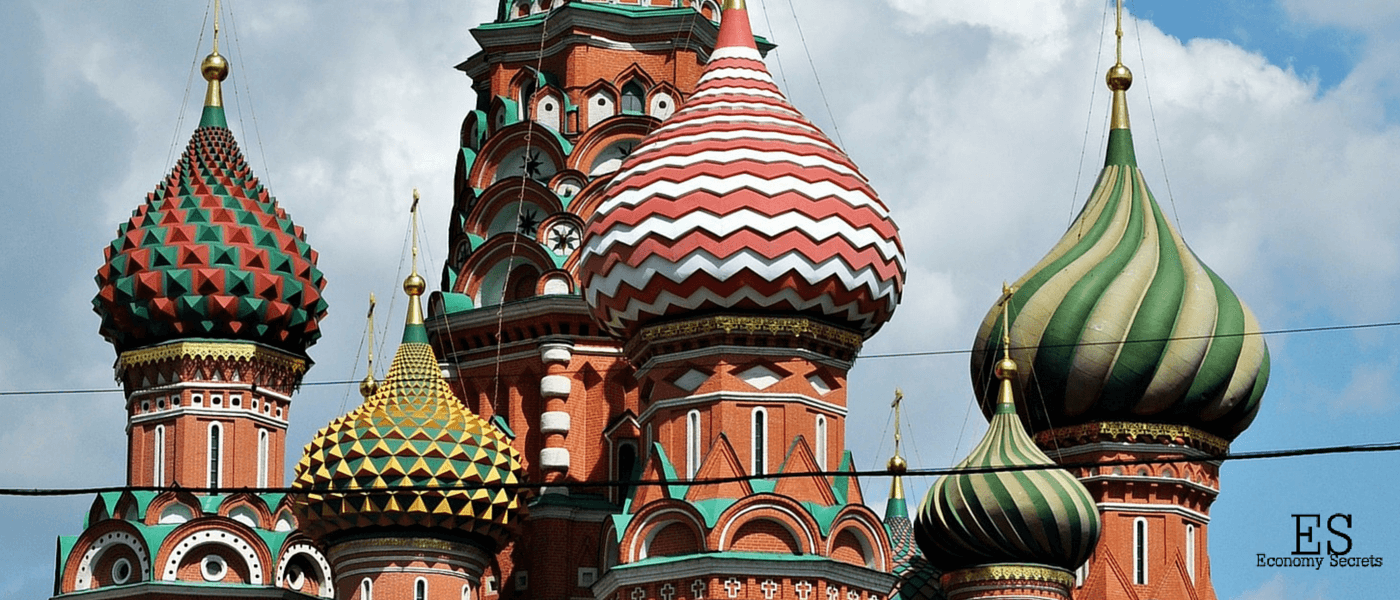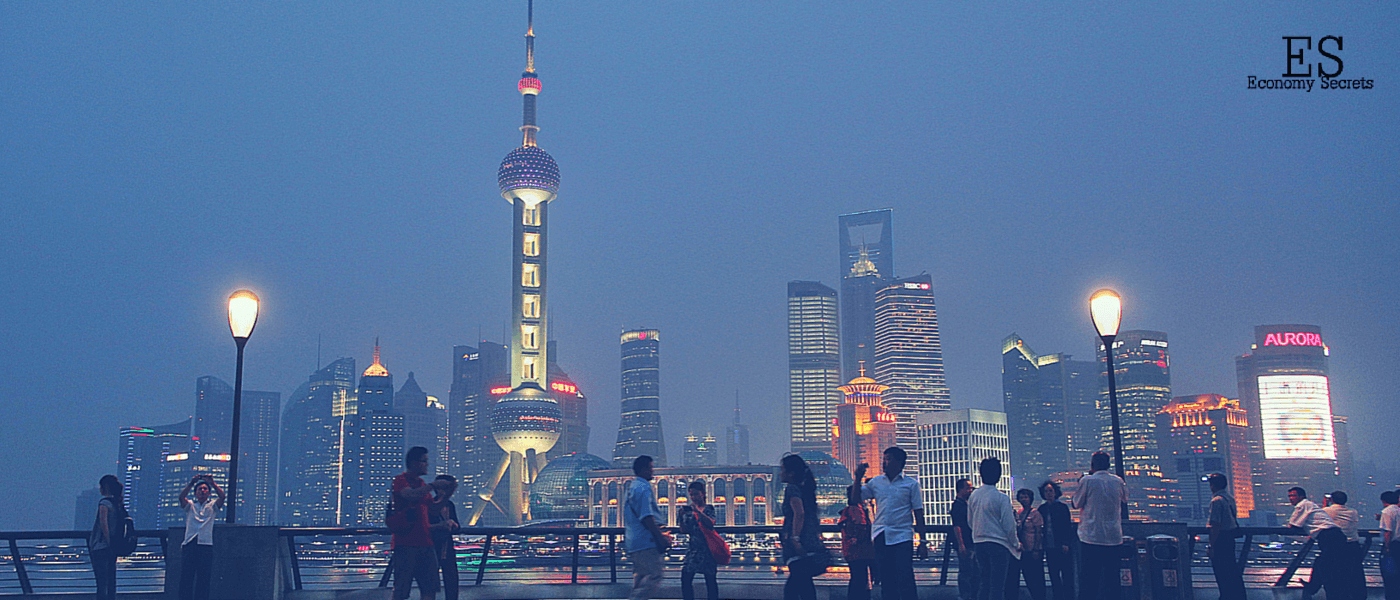Recently, we hear a lot about the economic globalization, either cause of some troubles that it brings, or some benefits. We hear that it helped some countries and people to escape from poverty but in the other hand, it exploited many others.
But what is the Economic Globalization? When has it started? Was it a bad idea? Or is it a good one but we have done it the wrong way?
In this post, we are going to go through all of it and see everything about the economic globalization and also find what are the mistakes that have been made.
The Economic Globalization, what is it?
The Economic Globalization means the tendency of international trade, investments, information technologies and outsourced manufacturers to gather the economies of diverse countries together.
In other words, it’s the way that many businesses can have an international activity. For example, let’s say an American Cars company can manufacture the parts of the cars in China, then transfer all of the parts to be assembled in Germany and finally sell the cars in a worldwide scale.
The economic globalization allows every company to reduce all the costs of production by using cheap workforce that comes mainly from poor countries. And since the sales goes worldwide, the profits overall rise.
Furthermore, the economic globalization brings the competitivity to its highest level. That profits to the consumers since they will get the best products for the cheapest prices.
The economic globalization is not something new -as many people might think-. it started many centuries ago. It was there since the Ancient Times. Caravans used to travel from region to another to buy goods (like spices and gold) and then they trade them when they are back at their home country, generating profit of course.
But there are also some bad sides to the economic globalization. When big corporations go manufacture in another country in order to reduce its costs, it will automatically deprive native people of the home country of the company, from many jobs opportunities. Of course, these job opportunities will not disappear, they will go to other people, who are based in a poorer country and where employees will be hired for a cheaper price.
But this way it profits only for corporations and nobody cares about the poor employees that lose their jobs just because they are judged as being “over expensive labor”.
Unfortunately, some big and huge companies nowadays, profits from this too much. They hire people from poor countries and exploit the fact that they are poor in an inhuman way. They make children who are supposed to be at school learning or with their friends playing, work many hours a day for just some few dollars.
Furthermore, the huge companies keep generating more and more profits that way, and they expand the number of poor people they exploit. The vicious circle of the economic globalization keeps going…
So, the economic globalization has brought benefits, but many bad sides that can make you wonder about the humanity of human beings.
Is the economic globalization wrong? Or has it only been “done” in a wrong way?
The economic globalization brings a lot of benefits. It’s an improvement for the global economy. So, the economic globalization is definitely not wrong or a bad thing. It’s just that we, sorry, I mean: “some greedy people”, have exploited the economic globalization to its fullest and thought only about their own profits.
That what has made the economic globalization became so harmful to the humanity.
Hopefully, there are global institutions who works to make the world a better place. To maximize the benefits of the economic globalization with the less of harm possible.
Regrettably, according to a Nobel prize winner, Joseph Stiglitz, some of these institutions instead of repairing the world and making it a better place. They are just contributing to making it worse!
let’s see how he showed all of this.
How an Economics Nobel prize winners shows where it has been done wrong?
First, who is he?
His name is Joseph Stiglitz. He was born in February 1943 in Indiana, USA. He is an American Economist and also a professor at the Columbia University.
Joseph Stiglitz won the Nobel prize in 2001 for his works on analyzes of markets with asymmetric information.
Joseph Stiglitz is a former vice president and chief economist at the World Bank and also a former member and chairman of the Council of Economic Advisers. (back at that time he was the advisor of the president Bill Clinton.) Now, he is the advisor of Janet Yellen who is the actual chair of the board of governors of The FED.
Through all his life and works, Joseph Stiglitz has criticized the global economic system many times. He also blamed the IMF (international monetary fund) to be responsible for using the economic globalization not to serve the worldwide economy but to serve the interest of the biggest industrial countries.
He also shows, that what are called “developing countries” are in fact not developing at all, and it’s mostly cause of what the IMF does. He also argued how much the strategies used to transit countries from the communist system to the capitalist one, has been dictated to be done in a wrong way from the IMF, and all of that has just led to catastrophic results.
He published all of his remarks of what make the economic globalization been done in a wrong way in his book: “Globalization and Its Discontents”.
We are going to see some examples of the failure of the IMF strategies, and how some others have succeeded in their transition to the capitalism. Also, we will discuss the big mistakes that are made nowadays that make the economic globalization worse and worse every day.
Example of the big fails of the IMF
Ethiopia
In 1997, Joseph Stiglitz went for his first mission of the Wold Bank to Ethiopia. He met with the actual president back at that time, Meles Zenawi.
At that time, the IMF stopped all its monetary help for Ethiopia by judging its macroeconomic results. Although, these results couldn’t have been better! The inflation rate was low, and the local productivity was rising, but yet the IMF hasn’t seen all that.
According to Joseph Stiglitz, the IMF confuses betweens the ends and the means. The important macroeconomic statistics are the inflation, growth, and the unemployment. When the inflation is high, it leads to weak growth which finally lead to a high unemployment rate. That’s why the inflation should be controlled, but it’s not the principal statistic to worry about.
But The IMF, never make attention to that, and mix everything.
The IMF also required that the monetary subventions given from the international donators should be used as reserves of currencies in order to be ready for the bad days instead of using it to build Hospitals and schools. Which is nonsense! This money should be used to help the Ethiopian people and Ethiopia to develop itself. Why wait for some “bad days” when they are already in the “bad days“?!
They also asked Ethiopia to open its market to the international market. To make it possible for the big companies to sell their products in Ethiopia. More than that, even the worldwide banks should get access to Ethiopia market. That way, the local companies are going to be unable to compete with all the successful and powerful banks and corporation that might come. And these ones are going to offer better prices and products, which will lead to bankruptcy for any Ethiopian company and hope.
And that’s how the strategies and decisions took from the IMF in order to help Ethiopia hasn’t led to something big. Ethiopia is still a country in development. It’s just poorer and in worse case than before.
Korea
When the Asian crisis happened, the IMF made its intervention as always to “save” the economy. They came up with a huge and hard austerity plan. that according to Joseph Stiglitz: no economists -except the IMF ones- would agree to.
A plan which, according to Joseph Stiglitz, no economists -except the IMF ones- would agree to.
But Korea hasn’t shown any disagrees or complaints about the hard austerity plan. It was very strange and weird.
It’s just later, that it has been revealed that the Korean authority couldn’t complain about these measures because they were afraid that complaining will have a bad impact to their economy. They were right.
It’s known that when the IMF make a bad criticism about a country, or a bad review about it or even just states that a country doesn’t want to apply the “right” measures -according to the IMF it’s only their measures that are right- to get out of the crisis.
This will simply lead the concerned country to not receive help funds from the IMF and the World Bank and all rich countries.
Even more, it will make all investors avoid that country because it has a “bad reputation” and it’s taking the “bad decisions” to have a good economic situation.
Furthermore, the way the IMF gives its loans is definitely not in the right way. They give the loans with many conditions to respect.
They proceed that way: The IMF will give a part of the loan’s amount and set a time when they will send another part.
Before the due date, they check if the country has filled all the requirements and conditions that the IMF set with the concerned country.
It’s a good way to check that the country helped is doing all what the IMF imposes to it. But sometimes the requirements are more political than economical.
For example, they asked Korea to make the central bank independent of the Korean authority, which is insane!
The IMF asked a country who were in crisis, to apply a measure that until today hasn’t been proven that it’s useful.
In fact, many economists nowadays think that the fact that the European Central Bank (ECB) is independent is one of the reasons that slowed the development of the European economy.
The IMF profits from its position of strength against developing countries to impose what it likes and what fit its vision.
The IMF even asked the central bank of Korea to focus on the Inflation. Even through, Korea didn’t have a problem with the inflation at that time.
Joseph Stiglitz mentions the old days when he was the adviser of the president of the USA, Bill Clinton. They fought against an initiative of making the Federal Reserve to be focused mainly on the inflation. Joseph Stiglitz say:
If the USA, don’t accept some requirements from the IMF they are not going to be affected a lot, everyone know that they have a strong economy and they don’t need any donation from the IMF or the World Bank.
Unfortunately, this is definitely not the case for developing countries who are under the mercy of the IMF.
Korea has even through succeeded, but it could have been worse.
Any requirement made should be studied in details, case to case, and adapted to each situation. The IMF should not have only one list of requirements to apply to all economies no matter how is the situation.
Russia
After the collapse of the Berlin wall in 1989, one of the biggest transitions has started in the world. Many countries have started to go from the Communist economic model to the capitalist and liberal one.
We are today in 2015, and soon it will be 2016. But still, the economic transition hasn’t been done completely.
Worse than that, countries like Russia has been pushed to do the transition in the wrong way.
The IMF recommended a fast transition, meanwhile many economists confirmed that there is nothing better than a step-by-step transition.
Russia was totally not ready.
Capitalism is usually summarized in these 3P: Price, Private Property, and Profit. with the competitivity these 3 P will create, coordinate the economic decisions and would make the companies produce what the people want with the lowest prices.
But, these three P will not make such a world real in a clap of hands. In order to make it happen, they need institutions! The ones that will regularize all the sectors and make it possible to have an economy without corruption.
Well, Russia didn’t have any of these yet, and they started the capitalist transition.
That’s why until today they are not as great economically as they could be. The natural resources are helping them, but they will not last forever.
If the economic globalization has failed a lot, it’s due to some reasons. Let’s see them.
Why has the economic globalization failed so much?
According to Joseph Stiglitz there are 3 essential big mistakes made:
- Lack of transparency: Many of the decisions taken -and imposed- are discussed and planned in total secrecy. There is a huge lack of debate and study before to take a decision. Also, the decision may be taken only by a few people, but its repercussions will apply to all the citizens of a country or a defined space. They should all be aware of what is going to happen and all the possibilities that might result. They should all have the right to express their opinions about what decisions to take.
- The fast move: The transition for a system that were under communism for many years and decades to capitalism should not be something that happen overnight.
Any country should go step by step, and never try to go faster than what it needs.
- The absence of case to case study: There is a total absence of study of the case of each country in difficulty. These days, the IMF come up with some same basic requirements to all countries. These requirements may not be the right for all of them. There should be a detailed study of the economy concerned, what are it’s difficulties? Why is it in this crisis? What are all the possibilities to resolve this problem? What is the best way to resolve it without making life of it habitants impossile (e.g: case of actual Greece)?
.
The economic globalization may be a huge mess and bad news for so many countries and people, but it hasn’t profited only to industrial and wealthy countries. The rise of huge economies happened in the last century. And that’s the case of China.
The Economic Globalization Success: China’s case
China is the best example that shows how the transition from a communist economy system to a capitalist one can be done. It can even be a great success!
China nowadays is one of the wealthiest countries around the world. It has a major role in the global economy and went from just being influenced by other countries to be one of the influencers.
The secret? They simply avoided all the big mistakes that happened to other countries (like Russia). The did the transition step-by-step, going slowly but surely.
They focused on the national growth and opened their markets slowly to the worldwide trade. They didn’t accept to receive products until they had products that can compete with them locally.
That’s what led them to become what they are today. And of course, they will keep evolving and improving the economy, they just have to never try to rush the processes.
That’s it. That’s all what concerns the economic globalization and why and how it has been done and still done in a wrong way.
To summarize:
- We defined the economic globalization and saw its general pros and cons.
- We saw what a Nobel prize winner -Joseph Stiglitz- thinks about the economic globalization and his analysis about it. (if you want to know more from him you can read his book)
- We saw why it has failed so many times with some concrete examples.
- Finally, we concluded with the success of the economic globalization that has been done by China.
The economic globalization is definitely a good thing.
It’s the natural improvement of the economy. We don’t know what will come next, we just need to master the economic globalization and make it profitable for everyone on the world. For institutions, countries, people… EVERYONE DESERVES TO GET BENEFITS FROM IT!
If you have any questions or remarks, let me know about it, in the comments below.
I wish you a nice day, and see you in the next post!






